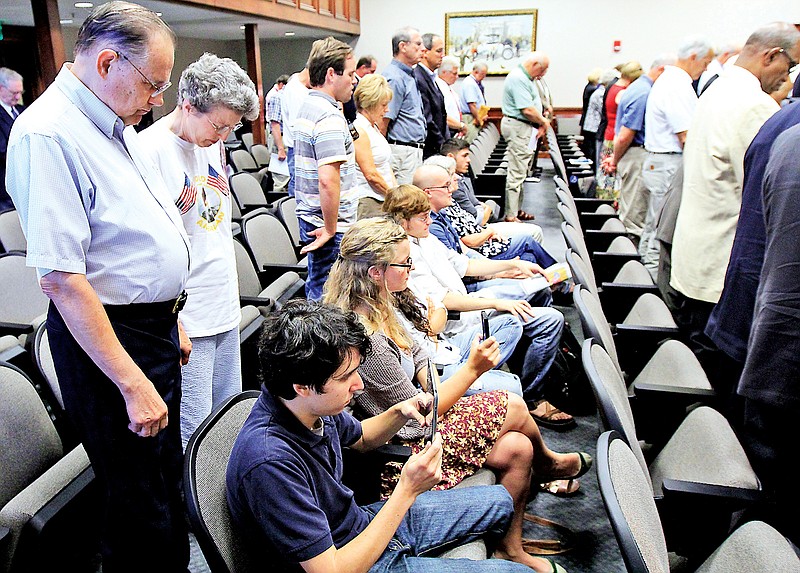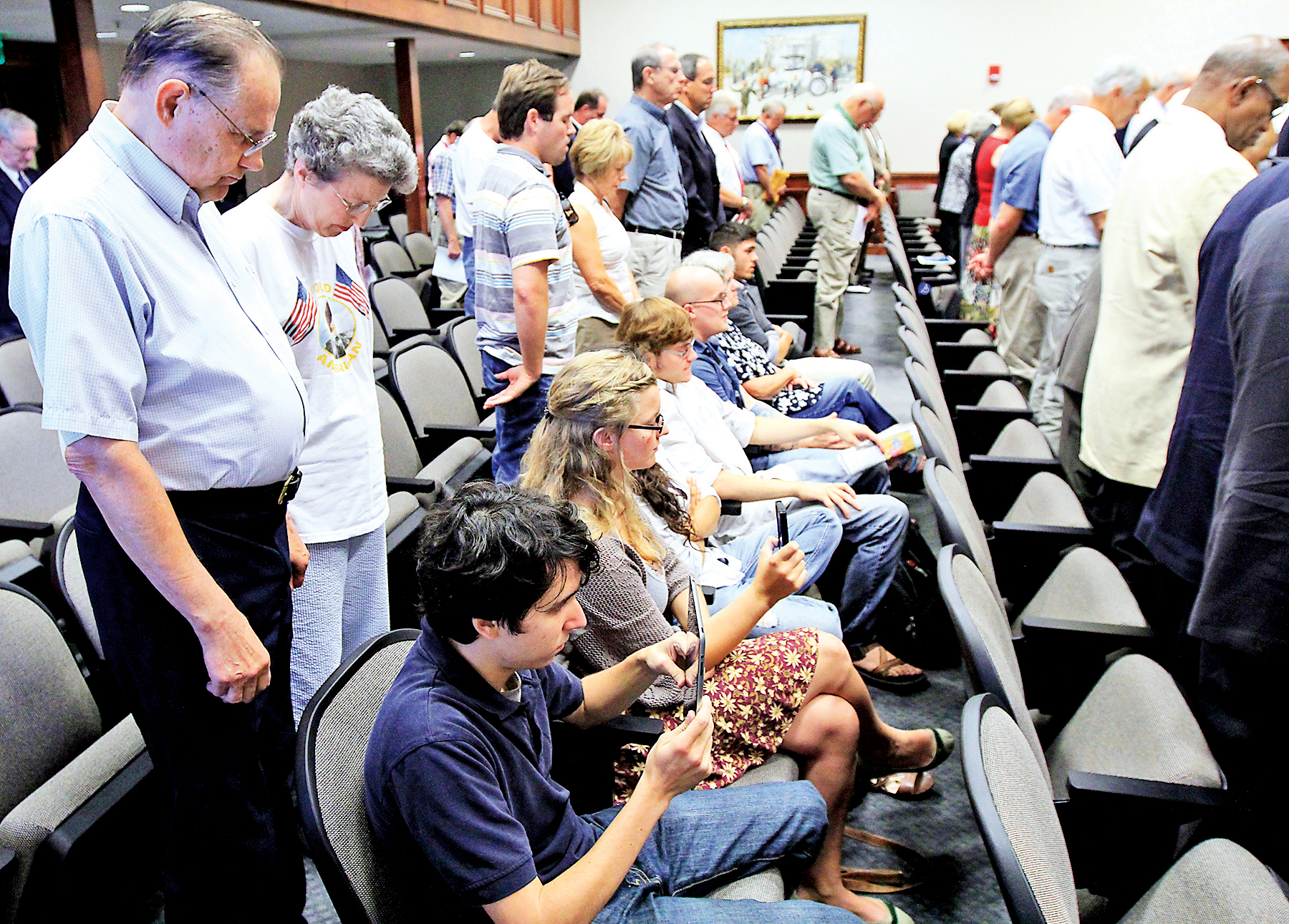Tommy Coleman doesn't want commissioners to stop praying. He just wants them to do it in silence.
In 2012, Coleman, who describes himself as a secular humanist, and Brandon Jones, an atheist, filed a lawsuit against Hamilton County, arguing the County Commission's practice of inviting ordained pastors to deliver invocations before each meeting excludes those outside the Judeo-Christian tradition. Instead, they argued for a moment of silence.
On Wednesday, most of their case was dismissed.
U.S. District Judge Harry S. "Sandy" Mattice issued an order granting summary judgment and saying the practice has already been deemed constitutional. He dismissed their arguments against the public prayer. Two more claims in the same lawsuit, that Coleman's arrest at a commission meeting in 2012 amounted to unlawful seizure and assault, will head to trial.
"Plaintiffs' argument is clearly flawed and flies in the face of established Supreme Court precedent," Mattice wrote in his order that upholds the prayer practice.
Stephen Duggins, the county's contracted attorney in the prayer case, said Coleman and Jones' First and Fourth Amendment claims have always been in the complaint, so he doesn't anticipate the county's strategy changing much.
"It's been what I would think everyone would consider the minor issue, but it is nevertheless an issue that needs to be addressed. We have multiple arguments that we believe will reject the plaintiffs' claim, but that's what the trial is for," Duggins said.
Coleman and Jones both said they expected Mattice's order.
"That they were denied is not necessarily a surprise, as this seems like an issue that is definitely going to need to be decided in a higher court," Coleman said.
Coleman and Jones said they intend to let that higher court decide the two issues dismissed by Mattice.
"We're planning to take this to Cincinnati, to the [6th Circuit] Court of Appeals, and we're hoping that we'll do better there," Jones said.
In fact, a similar issue has already played out in the nation's highest court.
The county's attorneys successfully moved for summary judgment by arguing that a recent Supreme Court decision out of Greece, N.Y., which covered nearly identical ground and called prayer a protected tradition, left few remaining questions for Mattice.
Perhaps the strongest example of the Supreme Court precedent has been set in the last year, with the 5-4 ruling in the New York case. But Mattice's order cites other rulings as well. The landmark Supreme Court case Marsh v. Chambers established the government's ability to pay chaplains. And in July 2013, the 6th Circuit upheld Mattice's own decision to deny an injunction that would have prevented the commission from praying at all while the case was decided.
Mattice said in his order that the county's policy, which invites ordained pastors of any faith to deliver an invocation on a first-come, first-serve basis, is in line with the policy the Supreme Court upheld out of New York.
"The county's policy, on its face, does not advance one religion over another; it allows for invocations from a variety of faiths and allows for prayers with religious references, but has not led to denigration or proselytizing," Mattice wrote. "The county does not involve itself in the content of the prayers offered and has allowed speakers from assemblies representing a variety of faith traditions. In fact, the county has never rejected a request to be added to the invocation schedule from an eligible member of the clergy under the policy."
Jones took issue with Mattice's response.
"It doesn't strike me as a surprise that a Bush-era appointee fails to see the separation of church and state," Jones said.
County Commission Chairman Jim Fields declined to comment on the order Wednesday, saying the litigation was still in court.
Chester Bankston, the commission's legal committee chairman, did not want to speak about the order, because he had not yet read it.
Staff writer Louie Brogdon contributed to this story.
Contact staff writer Claire Wiseman at cwiseman@timesfreepress.com or 423-757-6347. Follow her on Twitter @clairelwiseman.

